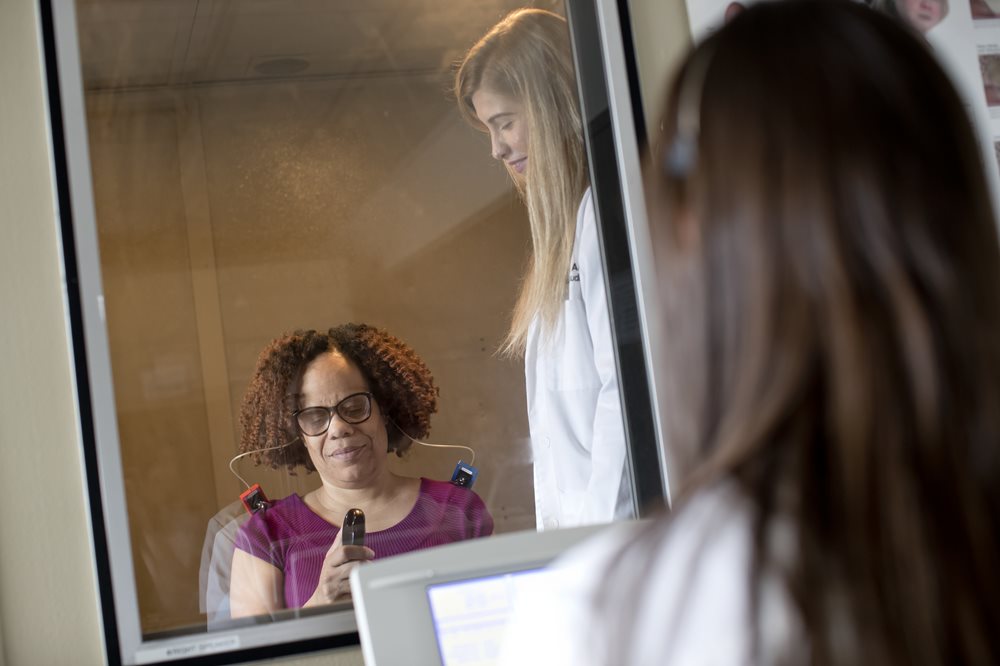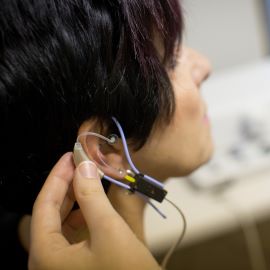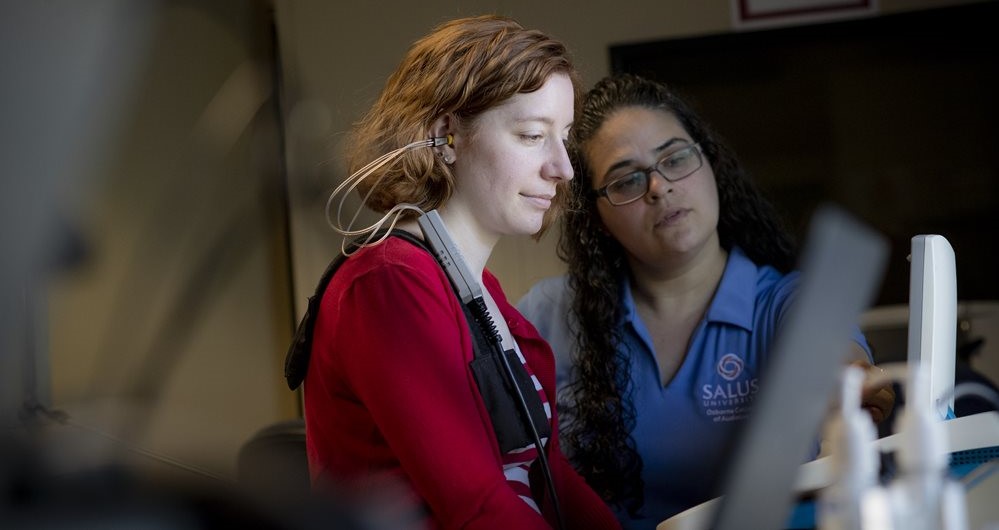Types of Hearing Loss
Not all hearing loss is the same. The type of hearing loss you have depends on what part of your hearing is damaged. There are four types of hearing loss — conductive hearing loss, sensorineural hearing loss, mixed hearing loss, and auditory neuropathy.
 Conductive Hearing Loss
Conductive Hearing Loss
This type of hearing loss occurs in the outer or middle ear where sound waves are not able to carry all the way through to the inner ear. Sound may be blocked by earwax or a foreign object located in the ear canal; the middle ear space may be impacted with fluid, infection or a bone abnormality; or the eardrum may have been injured.
In some people, conductive hearing loss may be reversed through medical or surgical intervention. Conductive hearing loss is most common in children who may have recurrent ear infections or who insert foreign objects into their ear canal.
Sensorineural Hearing Loss
This type of hearing loss occurs when the inner ear or the actual hearing nerve itself becomes damaged. This loss generally occurs when some of the hair cells within the cochlea are damaged.
Sensorineural loss is the most common type of hearing loss. It can be a result of aging, exposure to loud noise, injury, disease, certain drugs or an inherited condition. This type of hearing loss cannot be corrected medically or surgically, but can be treated and helped with the use of hearing aids.
Mixed Hearing Loss
Mixed hearing loss occurs when a person has an existing sensorineural hearing loss in combination with a conductive hearing loss. This means there is a problem in the inner ear as well as in the outer or middle ear. The conductive hearing loss may be temporary or permanent, depending on the source of the problem.
Auditory Neuropathy

In this type of hearing loss, sound is processed well by the inner ear but the transmission of signals from the inner ear to the brain is impaired. Those with auditory neuropathy, regardless of an underlying hearing loss, have trouble with speech perception or understanding speech clearly.
Hearing loss is described by varying degrees, not percentages. Hearing loss may be mild, moderate, moderately severe, severe or profound and vary across pitches. It is determined by a simple hearing test as the amount of volume loss you experience compared to an average of many other adult listeners with normal auditory systems. The volume or intensity of sounds you hear is measured in decibels (dB), 0 dB being the softest whisper and 120 dB being a jet engine. The softest sounds one can hear are called thresholds. Normal hearing thresholds for adults are considered 0 to 25 dB.
Mild Hearing Loss
People with mild hearing loss may have difficulty hearing soft-spoken people and young children. They are often able to hear the loud or more intense vowel sounds, but may miss some of the softer consonant sounds. They may have to ask people to speak up or repeat themselves on occasion.
Moderate Hearing Loss
In addition to missing consonant sounds, vowel sounds then become more difficult to hear. People with moderate hearing loss often comment that without hearing aids they hear, but can’t always understand.
Moderately Severe Hearing Loss
Without hearing aids, speech is inaudible. Even with hearing aids, speech may be difficult to understand. Increasing the amplification doesn’t always make it clearer.
Severe Hearing Loss
Without hearing aids or cochlear implants, speech is inaudible.
 Profound Hearing Loss
Profound Hearing Loss
Without hearing aids, individuals may be unable to hear very loud sounds such as airplane engines, traffic, or fire alarms.
Hearing testing is critical for discovering exactly what type of hearing loss you have, and will help determine the appropriate hearing care solution. Hearing aids are available in many sizes, styles and technologies on site at the Pennsylvania Ear Institute.
If you suspect you or a loved one may have some degree of hearing loss, contact the Pennsylvania Ear Institute. Our expert audiologists will assess your hearing and make recommendations on how to address your hearing needs. For more information on PEI’s services or to make an appointment, call 215.780.3180.